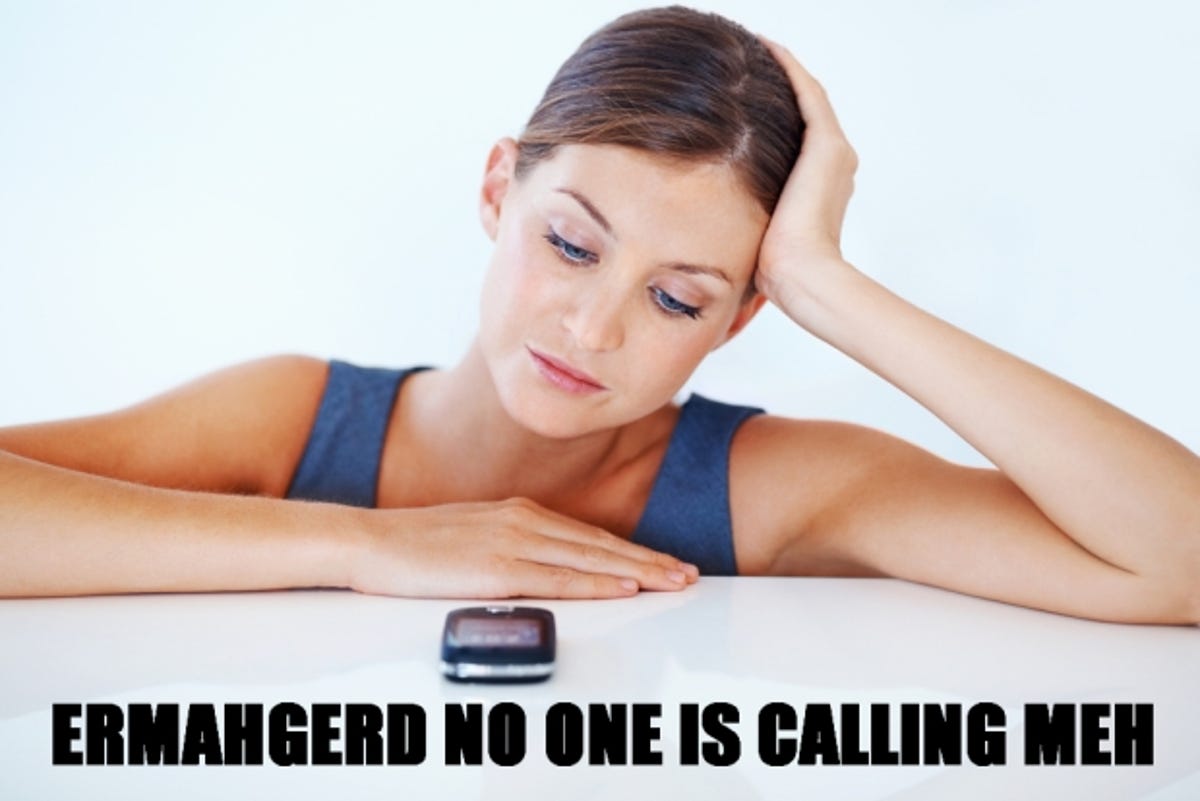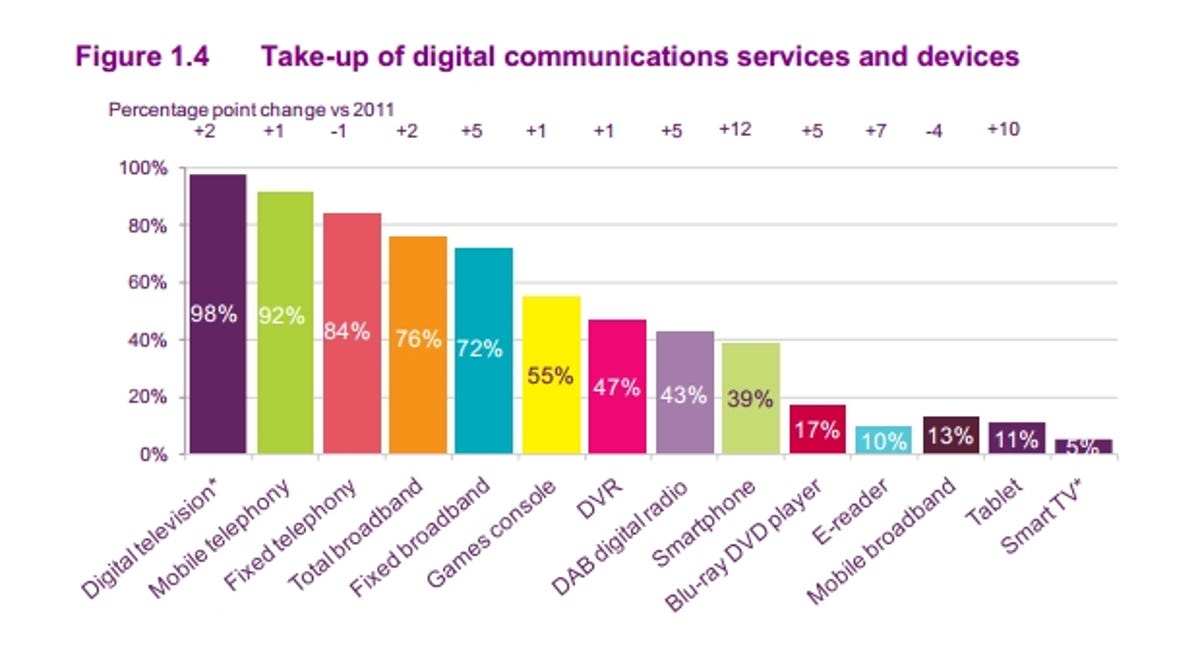
Who ya gonna call? Fewer people, according to Ofcom. The phone regulator says for the first time ever the number of calls on mobile and landlines has fallen, according to its annual state-of-the-nation communications survey.
Texting has taken over as the most popular form of communication for Brits, with each of us sending over 50 texts every week. In 2011 that added up to a frankly ludicrous 150 billion messages — more than doubling since 2007.
Mobile Internet usage has surged too, with adults spending on average 90 minutes every week looking at social networks, the web and email on their phones.
Some 39 per cent of us have smart phones now, with some form of Internet access present in eight out of ten homes. Surprisingly, 11 per cent of us now own tablets, up from just 2 per cent last year — one third of which have 3G, two thirds Wi-Fi only.
A whopping 45 per cent admitted they didn’t need a tablet and it was just a treat. Perhaps surprisingly, slightly fewer people (10 per cent) own an ebook reader.


The age gap in how people use their phones is striking — a whopping 96 per cent of 16-24 year olds use texts (or other text-based methods such as BBM or email) every day, whereas only 21 per cent of those aged over 65 do the same.
The yoof’s next most popular method of communication is social networks, with 73 per cent using them regularly. That beats mobile calls (67 per cent), meeting face to face (63 per cent) and trailing way back is the mouldy old landline on just 15 per cent.
Stereotypes of luddite old people are borne out by just 4 per cent of over 65s using social networks, with landlines their most popular method of keeping in touch.
Even how we say “Happy birthday!” is changing. Most adults (58 per cent) still send a card, but 16-24 year olds are more likely to text you or post on your wall.
Despite all this mobile activity, the networks made less money, perhaps off the back of the decline in calls, with reported income for operators down by 1.9 per cent. What’s that I hear? Is it the world’s smallest violin?
Ofcom asked us about our telly habits too. Digital TV has completely taken over from analogue, with 98 per cent of households owning a digital set or box, up 12 per cent this year. Just 5 per cent of households own an Internet-connected smart TV, although this is rising fast.
We watch just as much TV as ever, in spite of all our Internet-connected gubbins. The average Brit spent 4.3 hours a day in front of the telly, with only busy 25-34 year olds reducing the amount they watch, from 3.5 to 3.3 hours per day since 2005.
Ofcom asked different questions in different surveys, with its sample size between 1,800 and 4,000 people from across the UK, and also used data from TV-measuring agency BARB and radio boffins RAJAR, among others.
Do you use texting more than calls? Are your grandparents embarrassing you on Facebook? Are you surprised how many people have tablets? Has tech changed the way you talk to people? Give me a flavour of the nation in the comments, or over on our Facebook page.
Chart: Ofcom



